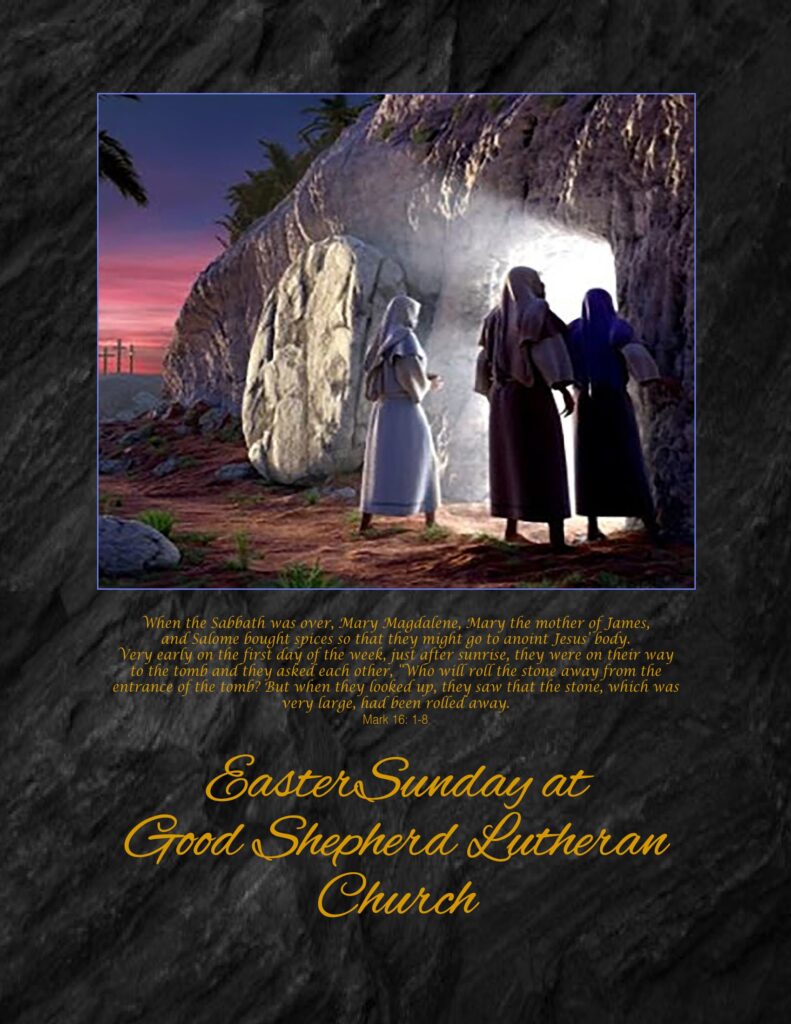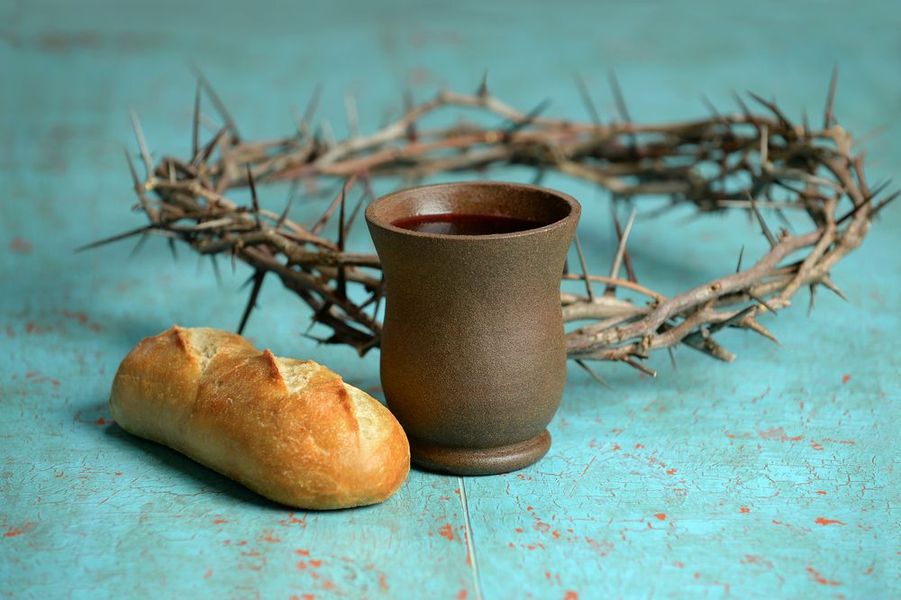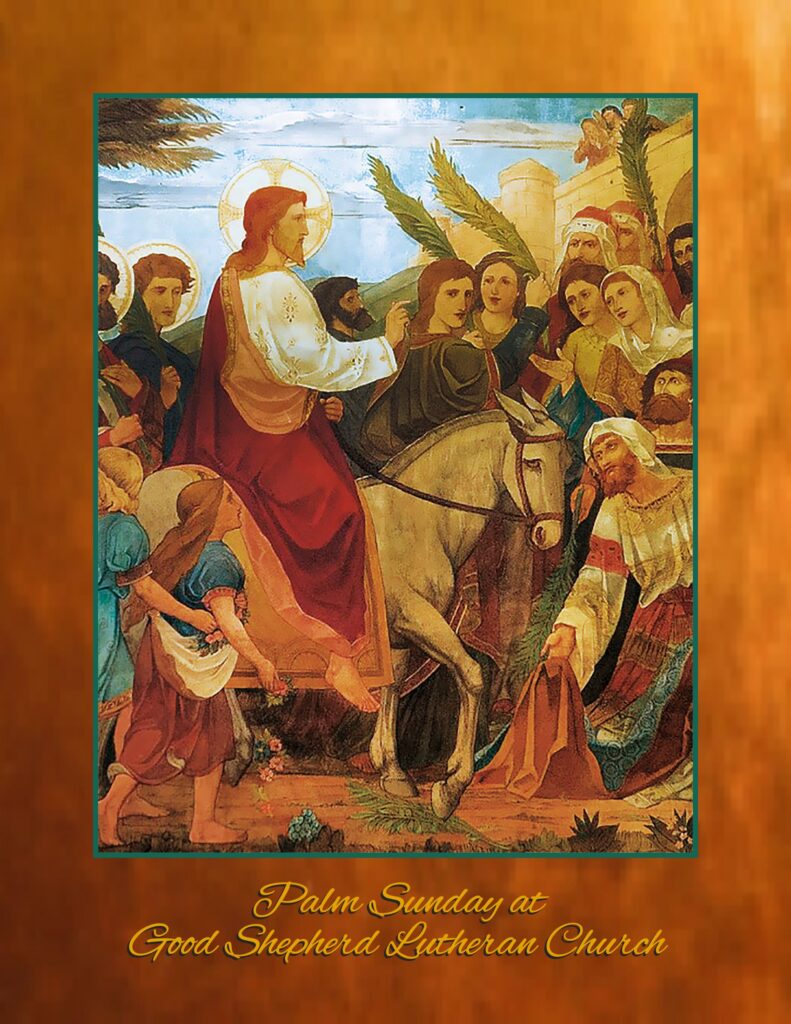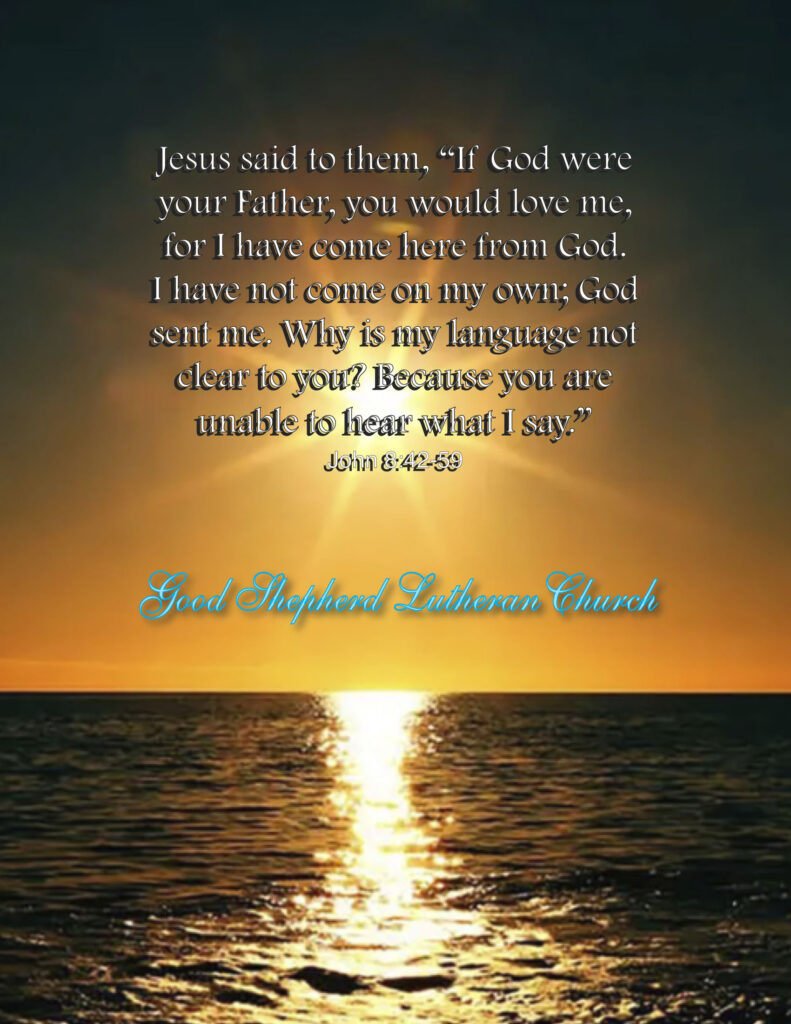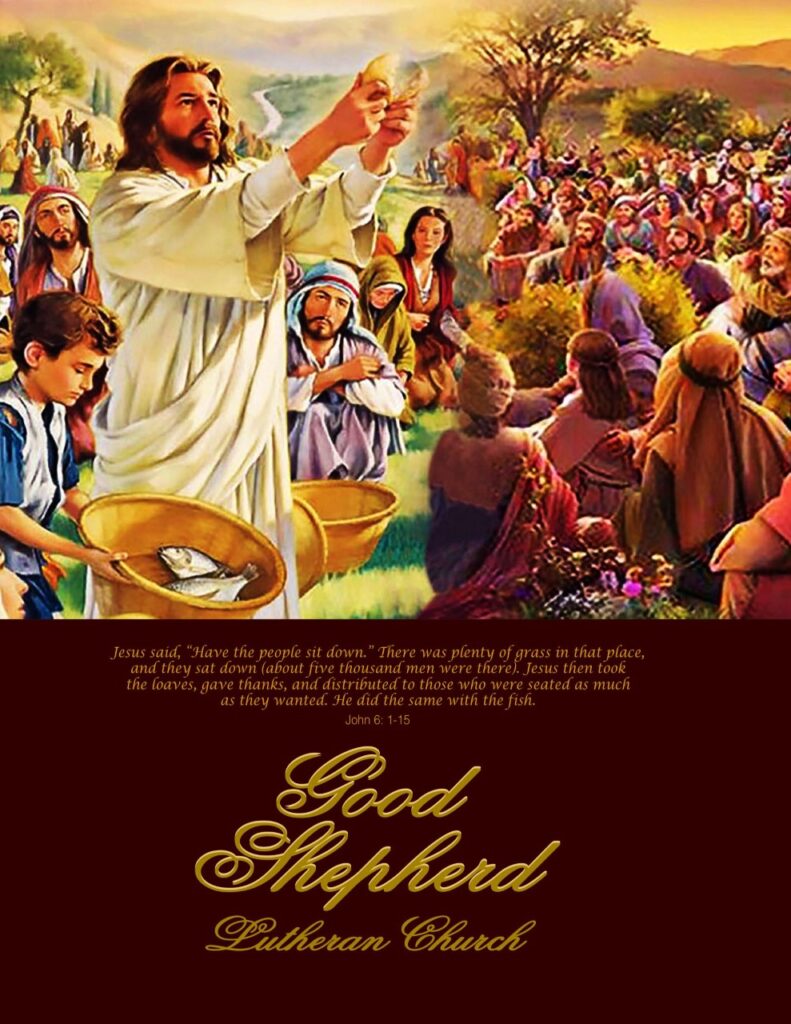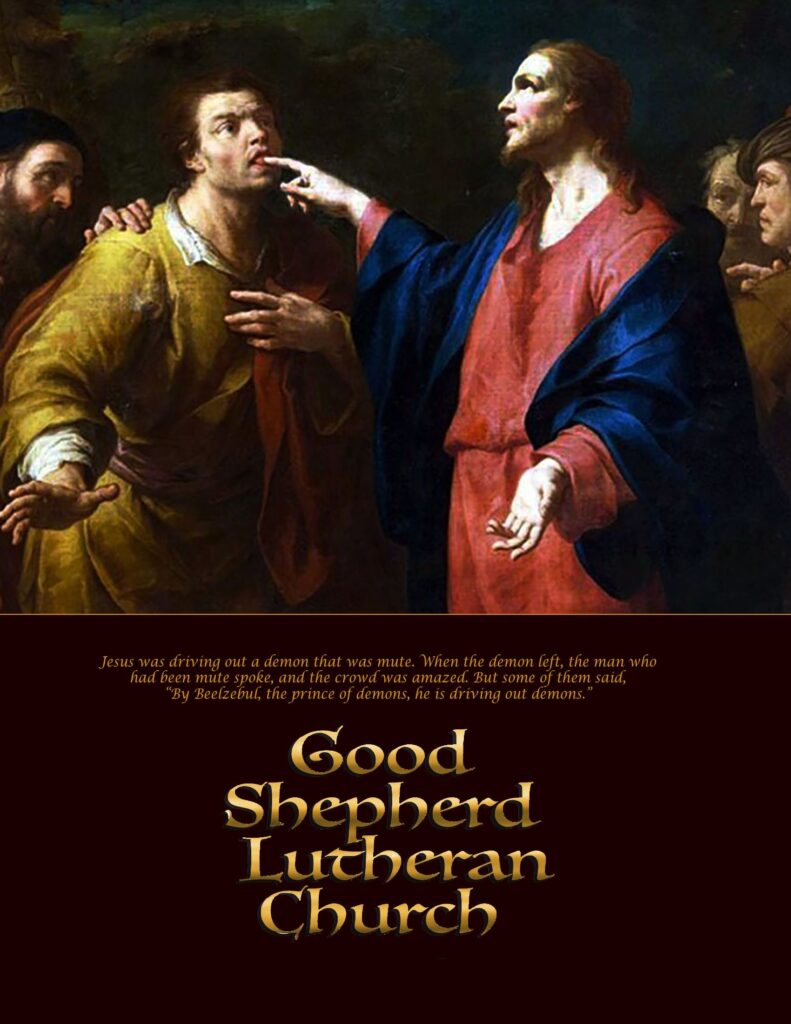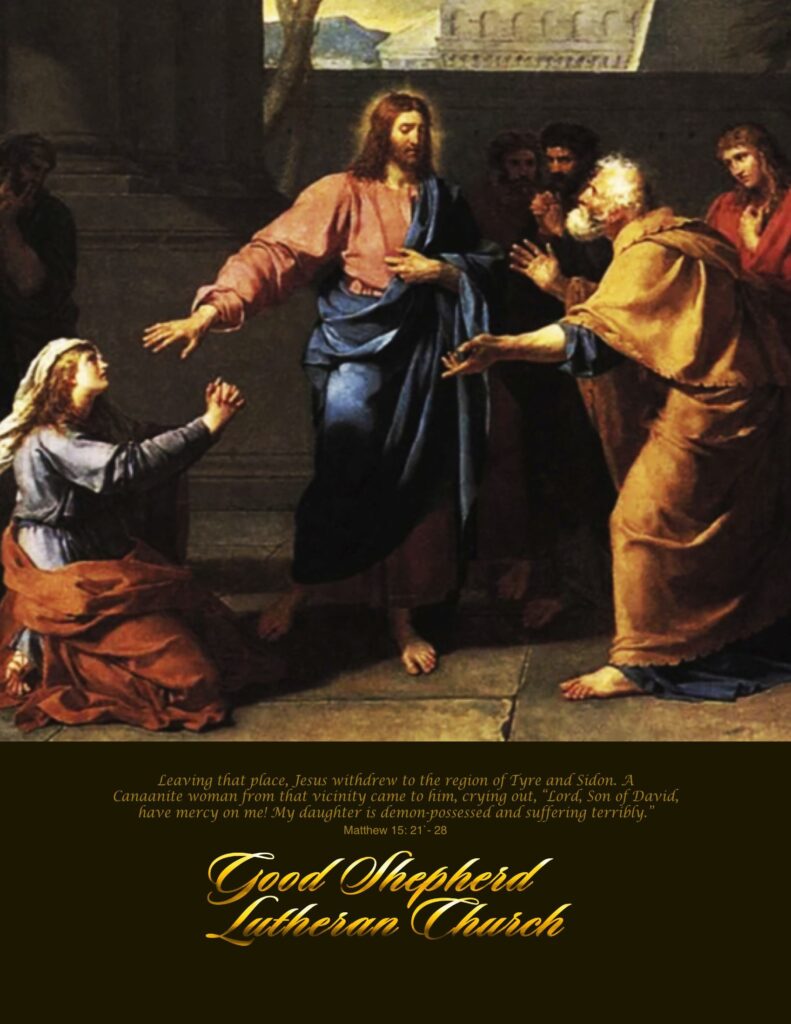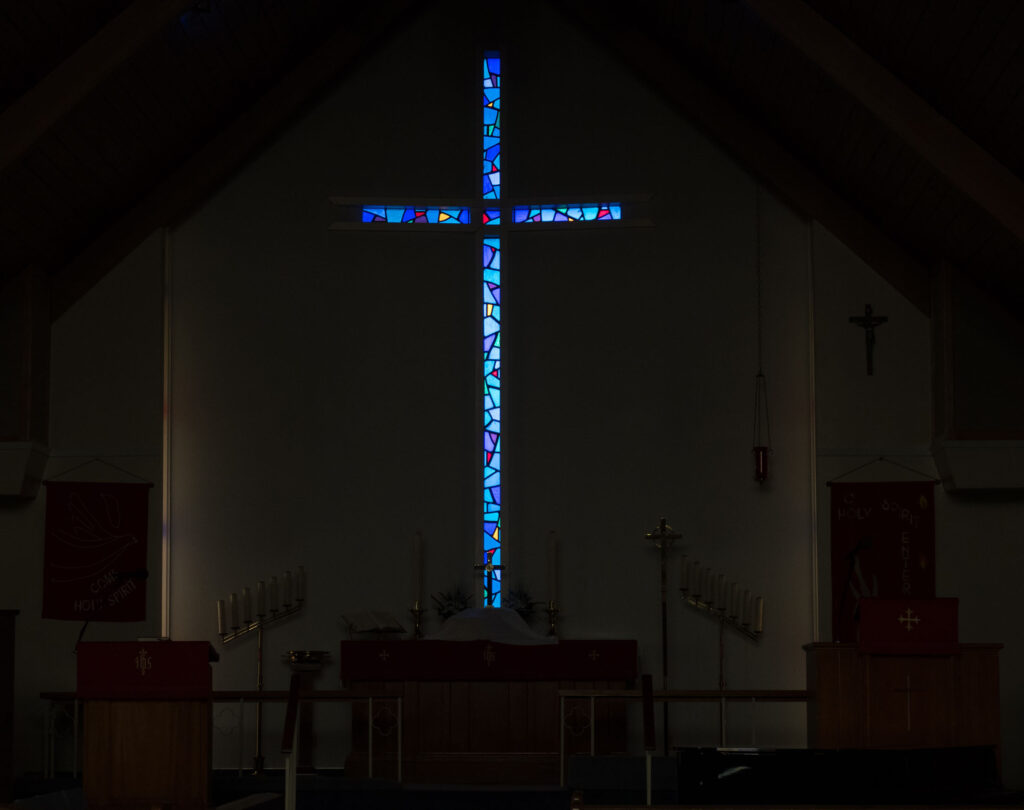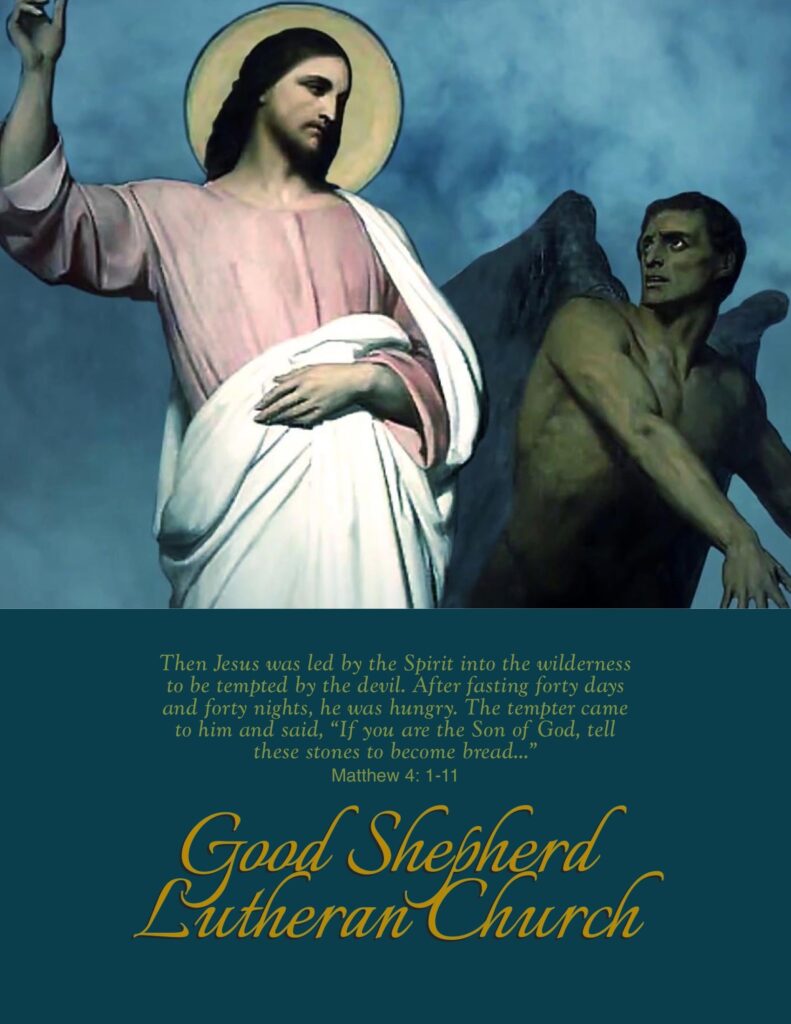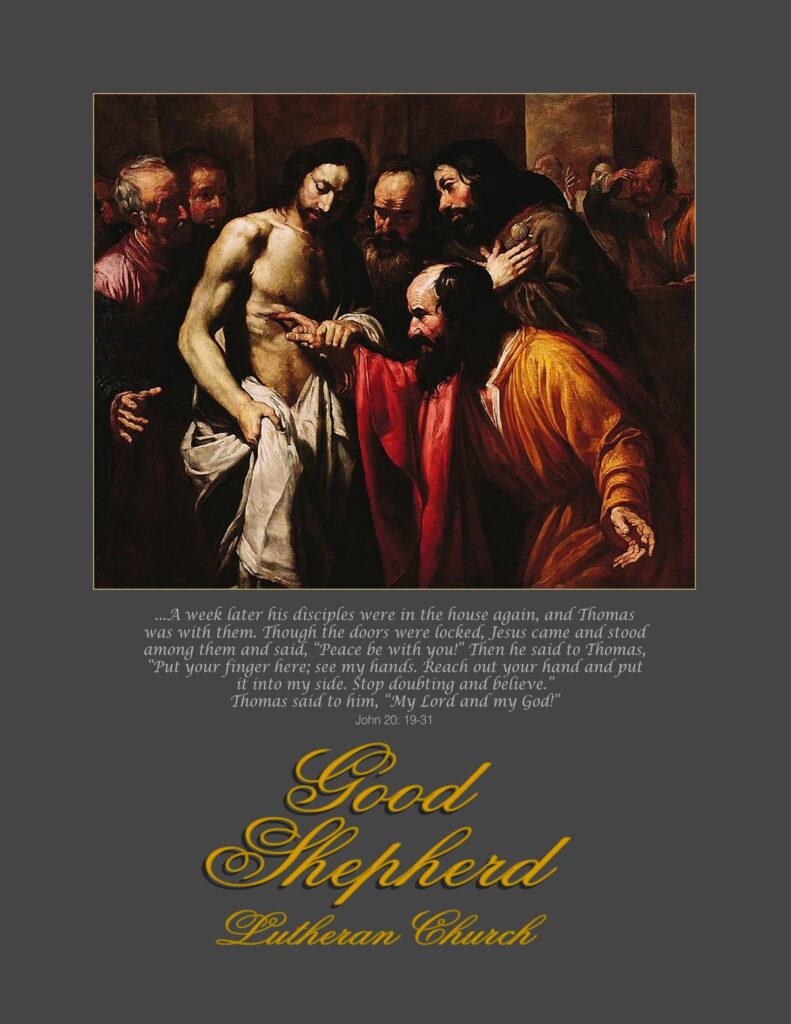
Back when you were younger, did you ever hear the phrase, “Just wait until your father gets home!”? Or maybe, “Wait till your mother gets home”; maybe one was worse than the other. But what did that mean? We would have heard these words only if we had done something wrong, something deserving punishment. How did it make you feel? Worried, afraid, wondering, “What kind of punishment will I get?” Right?
In the Gospel text for today, the disciples may have experienced a similar fear. The text from John begins by telling the account of Easter Sunday evening. As the text begins, there were only 10 disciples gathered in a room, most likely the same room where only a few days before Jesus had eaten the Passover supper with them. The same place where He instituted the Sacrament of the Altar; the same place where He spoke to them all about what would have to happen to Him in order to fulfill all Scripture. He told that that He would be betrayed, He would have to leave them to a place where they could not follow. He told them that they would be scattered, and desert Him. When they had heard these words originally, their hearts had been filled with sorrow and confusion.
That Sunday evening, they were no doubt filled with more confusion, for everything Jesus said would happen did; They had scattered in fear for themselves, deserting Jesus. Jesus was betrayed, He was tried unjustly, crucified, and killed, and buried. But then, on Sunday, they had heard from the women that the tomb was empty, and there were two angels who asked them why they were looking for the living among the dead. Peter and John went to the tomb and behold, it was empty. Mary Magdalene reported to all the disciples how Jesus appeared to her and gave her the mysterious message for the disciples “…I am ascending to my Father and your Father, to my God and your God.” He had said in the upper room, a few days earlier, “I came from the Father and came into the world, and I am leaving the world and going to the Father.” The two disciples who had been on the road to Emmaus had delivered their report of Christ’s appearance to them and how He revealed Himself in the breaking of the bread. This reminded them of Christ instituting the Sacrament of the Altar that same Thursday night. Then as it was just the 10 disciples, minus Thomas discussing these mysteries, their hearts likely still filled with fear that they too might be arrested and put to death. They were afraid of the Jews, but as to the news of Jesus, they probably didn’t know whether to be happy or upset. Afraid it might have been a trap. Also, If Jesus did arise from the grave would He possibly be angry at them for deserting Him in His hour of need? Is that why He had had not yet appeared to any of the 11, because he was angry at them? If He did appear, maybe He would yell at them, or smite them. Peter might have been thinking, “I did deny Him three times before the rooster crowed, just as He said I would, even though I told Him that I would even die with Him.” “Just wait till your Master gets here!…”
Jesus knew this would happen and He had told them Thursday “not to fear”. That “He had overcome the world”. That night the disciples probably weren’t recalling those words of reassurance that Jesus had spoken as they were seized with fear. It is human nature to focus on the grim and the bad news and to cling to fear rather than to trust God in any difficult time… but especially when you know that you are guilty, that you have failed. So, there they were, with hearts in turmoil, fear and angst, mourning their Lord’s death and wondering what was next?
Then Jesus appeared to them suddenly, and while their minds and hearts had no idea how to react, He knew their troubled and guilt-ridden hearts and minds. So, He spoke… “Peace be with you”. Fear may still have had power over them. They may have thought: “Was it Him, a ghost, a demon?” Therefore, He showed them the wounds of His crucifixion, the holes in His hands and His side. He did not yell at them. They had nothing to fear. Then they were glad, and once they were calmed down, He said to them once again, “Peace be with you.” In those words He said “All is forgiven, all is accomplished. You are now free from fear, because I have indeed overcome the world.”
Jesus had not come to judge them, but to absolve them. He knew that they had repented.
Now He would give them the strengthening of faith and office to give the same pronouncement of forgiveness for the Church. He breathed on them the Holy Spirit and the authority which Jesus had to forgive and retain sins was given to them as His apostles and ministers. Their spirit of fear, of darkness, of guilt, had been replaced by the Holy Spirit, who by the forgiveness of sins won by Jesus at the cross, gives a spirit of faith, joy, and gladness.
Jesus had prayed for the disciples on that Thursday night, and He had also prayed for future believers, those who would believe on the name of Jesus through the disciples’ testimony. Now He gave the authority to forgive and retain sins as a tool to establish repentance and forgiveness through faith in Jesus Christ for all believers in the future. To give them the spirit of love and peace, not fear.
Even though you and I should expect that when Jesus comes to us in the Divine Service, He would judge us, spite and shame us for our sins, our fears, our abandoning Him and His Words, He comes to us in within this building, as we have come here seeking help and sanctuary from the troubles, sorrows, fears, and failings of this world. He does not speak condemnation, but to those repentant, Jesus says “Peace be unto you”. Through this spoken Word of confession and absolution, the Holy Spirit continues today to free repentant believers from their sin, guilt, fear and shame in Jesus Christ.
The last part of the text spoke of Thomas, who had not yet seen the risen Christ. He doubted unless He saw Jesus with his own eyes and touched His wounds with his own hands. Therefore, the next Sunday night, Jesus appeared to them again, this time with Thomas present. Jesus spoke immediately to Thomas, and showed him His hands and His side, and then Thomas said, “My Lord and my God”, and he believed. Jesus said, “Blessed are they who will believe, though they have not seen.”
Dear friends, Jesus was talking about you and me and the majority of believers throughout time. Though we have not had the same proofs worked to us as to the disciples, the Holy Spirit has worked faith and hope into our hearts and minds by the signs and proofs that He has given. In the hearing of His Word, in Holy Baptism, Absolution, and yes, the Lord’s Supper we have given proofs and signs of His crucifixion and resurrection and that His peace and forgiveness is for us too.
Jesus does indeed come among us and His church with His presence to calm our fears, to remove them, to tell us in the midst of our repentant shame, “you are forgiven”. To tell us in the midst of our troubles and trials, that He has overcome the world and that in Him by faith we will too. Though we could not and cannot keep the Law and we be guilt ridden and worthy of punishment, He comes to us and says, “Peace be with you. Here are my hands, and my side, that were pierced for you. I fulfilled the Law, for you could not. I took the punishment of suffering and death, so that you would not have to experience eternal death. Believe on Me and your sins will be forgiven you and you will be made anew through faith.” In Holy Baptism, God took us and washed us in the blood of Jesus Christ, and in Absolution we are granted again that washing so that our spirit of fear would be replaced with a spirit of peace, and a spirit of faith.
When we have other things happen in this life, when we become afraid for the future, the future of this world or our future, our health, our jobs, our children or grandchildren, or our parents. Fear not. Take heart, dear Christian friends. God has you in His hand. He is here for you to receive His goodness and rest in His reassuring presence, the presence of Your crucified and raised Savior. In His supper we behold our God and Lord, receiving with our mouths salvation which He has won for you to be victorious over sin, death, and the devil in His name.
Now, begone all fear, Ye sons and daughters of the King, He has overcome the world, sin, and even death for you. Our future is one of hope and joy, through faith in Jesus Christ; He gives us the hope of eternal life in the future, but even now, we have joy. Joy in the simple things of this life and more, because we have Peace in Him and reconciliation with the Father. He has given us His forgiveness. He has died on the cross and risen again for you and me. Be made strong for any hardships in life, by His power here given. Be lifted by Him and by your brothers and sisters. Hear His Word, receive His gifts, and be comforted, for He loves you and has eternity established for His people. Yes, just wait until your Lord and Master, Jesus Christ comes a final time… It will be wonderful! He comes to take us to home to Himself to live in joy forever. This is our sure future, through our crucified and risen Jesus Christ, AMEN.
Pr. Aaron Kangas
